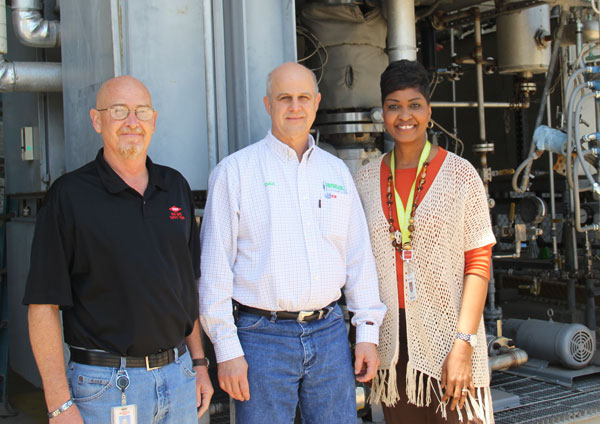How industry drives COM workforce programs

Preparing students to succeed in the workplace starts with asking employers what they value in employees.
In College of the Mainland workforce programs, instructors have created advisory boards to do just that.
In Graphic/Web Design Program, representatives Del Papa, Moody Gardens and Santa Fe ISD and other local organizations come once a year to talk about trends in an ever-changing field.
“These advisory committees build opportunities for students. Members of the advisory committee are so vested in the program,” said graphic design instructor Coleena Jackson, adding that often representatives will hire students for internships.
“I’ve been in education for 24 years, so it’s my advisory committee that keeps me current and moving forward. They tell me what skill set they expect of an entry-level employee.”
In the Medical Assistant Program, instructors and individuals working in hospitals and clinics convene to discuss medical best practices and needed skills in employees.
“I like giving my feedback from an employer's point of view, what we’re looking for. I want to do something to continue to improve the program,” said advisory board member and COM graduate Reshmi Dutt, who works for the University of Texas Medical Branch.
The COM Process Technology Program advisory committee is composed of representatives from Shell, Ashland Chemical, Eastman Chemical, BP, Marathon Petroleum and other industrial companies.
“We bounce ideas off of them. They tell us if they’d like to see us add a piece of equipment or skill to the curriculum, so we’re graduating students with the skills they want,” said Steve Wethington.
Industry representatives also guide students in mock interviews, panel discussions on careers and plant tours.
“The improvement of people and process is what I'm most passionate about. Serving on the advisory board was an opportunity to do that,” said Mae Francis, a training specialist for Ashland Chemical. “I’ve had the opportunity to mentor a couple of people from PTEC classes.”
The COM Process Technology Program’s efforts have paid off – COM graduates with technical degrees earn $73,509, the highest first-year salary of any new college or university graduate in the state.
For graphic design students, it’s paid off with job offers or internships.
“I have more internships than I have students,” said Jackson. “Professionals trust our program and students.”
For more information on COM programs, visit www.com.edu/academics.
